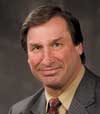
Adm. Director Respiratory Care
Upstate Medical University
Syracuse, NY
AARC member since 1976
AARC Activities:
AARC Vice President Internal Affairs 2009–2010. AARC Board of Directors Member 1997–1998, 2003–2009. AARC Special Committee for Roundtable Development: Hyperbaric Oxygenation; Co-Chair 2001. AARC Board of Directors Executive Committee Member 1998, 2009. AARC Bylaws Committee Member 1995, 2009. AARC Respiratory Care Geriatrics Committee Member 1999–2009. AARC Transition Committee Member 1999–2001. AARC Special Committee Centers for Excellence 2003. AARC Finance Budget Committee Member 1996, 1998, 2009. AARC Clinical Practice Guideline Steering Committee Member 1999–2000. AARC Membership Committee Member 2000–2001. AARC Special Representative CSLI Point of Care Testing Committee 2005–2009. AARC Special Repres. American Assoc. for Critical Care Nurses 2003–2008. AARC Management Section Newsletter Editor or Co-Editor 2003–2007. AARC Subacute Section Newsletter Editor 2003–2005 Member Education Section 1999–2009. Member Management Section 1999–2009. Member Continuing Care Rehabilitation Section 2000–2009.
House of Delegates Activities:
NYSSRC Delegate to AARC House of Delegates 1994–1995, 1997, 2002–03. New York State Society for Respiratory Care (NYSSRC) Alternate Delegate to AARC House of Delegates 1992–1993, 1996. AARC Speaker-Elect House of Delegates 1996. AARC Speaker House of Delegates 1997. AARC Past Speaker House of Delegates, 1998. AARC House of Delegates Chair Ad Hoc Committee on Delegate Funding 1995–1996. AARC House of Delegates Chair Progress and Transition Committee 1994–1995. AARC House of Delegates Progress and Transition Committee Member 1993.
Affiliate Activities:
NYSSRC Treasurer 1991, 1999–2001. President, Central New York Chapter NYSSRC 1991–1993. Past-President, CNYCNYSSRC 1994–1995. President-Elect, CNYCNYSSRC 1990. Board of Directors and tenure in office NYSSRC Board of Directors, Executive Committee 1994–1997,1999–2003. NYSSRC Board of Directors, 1990–1997, 1999–2003. NYSSRC Budget and Audit Committee Chairman, 1991, 1999–2001. NYSSRC Awards Committee Chairman, 1993–2000. NYSSRC Political Advocacy Contact Team Co-Chair, 2000–2007. NYSSRC Judicial Committee Chairman 1992–1997 NYSSRC Symposium Committee Co-Chair 1992, 1998 NYSSRC AD Hoc Progress and Transition Committee Chair 1994–1998,2006–2008. NYSSRC Budget and Audit Committee 1994–1997, 2002–2003. NYSSRC Symposium Committee Member 1995, 1996. NYSSRC Nominating Committee 1990–1991. NYSSRC Election Committee 1992–1993. NYSSRC Special Appointment Liaison to New York State (NYS) Department of Health Review Title VIII Coalition 1995–2005. NYSSRC Special Appointment to NYS Dept. of Health Utilization Review Committee 1995–2005.
Related Organizations:
AARC, National Board for Respiratory Care, NYSSRC SUNY, Cortland College Adjunct Instructor.
Education:
RRT, Anahiem, 1975. State University of New York at Cortland, Cortland, NY, 1992–1998. Masters Program in Health Education, Thesis Complete August 1998. State University of New York at Cortland, Cortland, NY, 1988–1992. Bachelor's of Science in Economics and Management Science, Conferred, Summa Cum Laude. Respiratory Therapy Program, Upstate Medical Center, Syracuse, New York 1972–1974 Associates in Applied Science Degree Conferred, Honors.
Publications:
Contributing Author: Respiratory Care: Principle and Practice, Hess, D., MacIntyre, N., Mishoe, S., Galvin, W., and Adams, A., W.B. Saunders Company, 2001. Contributing Author: Respiratory Care: Mathews, P. and Wyka, K., Delmar, 2001. Masters Thesis: Effects of Abstinence on the Success of Smoking Cessation Education Programs, State University of New York at Cortland, 1998. Author, Dyspnea Differentiation in Congestive Heart Failure and Lung Disease, AARC Times, April 2003.
What is your vision of the AARC in 2015?
My vision is to see the AARC leading our profession with national, state and local reimbursement recognition for all Medicare, Medicaid and insurance for the respiratory therapist. This will increase access to our care and services for patients. My vision is to be moving through the process to move the respiratory care profession to bachelor's entry level using a system that utilizes the current associate programs, distance learning and affiliation agreements. Our continued education is essential to be viewed by our colleagues as equals and disease managers.
What have you done in the last 5 years to promote the profession in your community?
I work multiple days at the New York State Fair Society booth doing outreach and Pulmonary Function Screening. Our state fairgoers have access to these services for 12 days and 12 hours a day. I have been instrumental in maintaining this commitment to the community/state in the face of declining participation in the volunteer sector. I regularly speak at school and college functions both on respiratory disease and the profession. I am a guest lecturer in the Tompkins Cortland Community College Nursing programs on respiratory disease and professional topics.